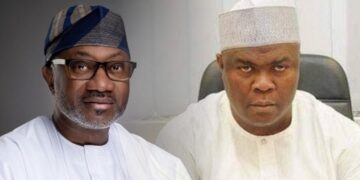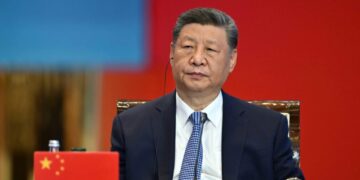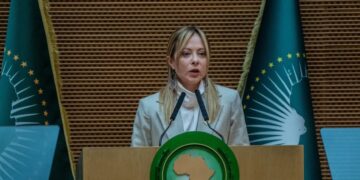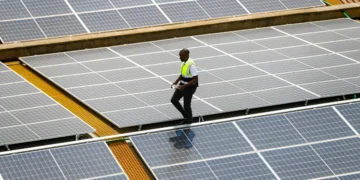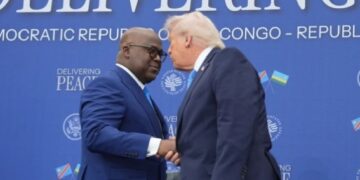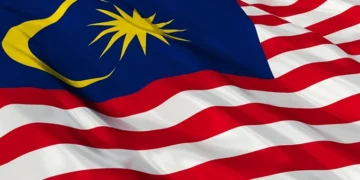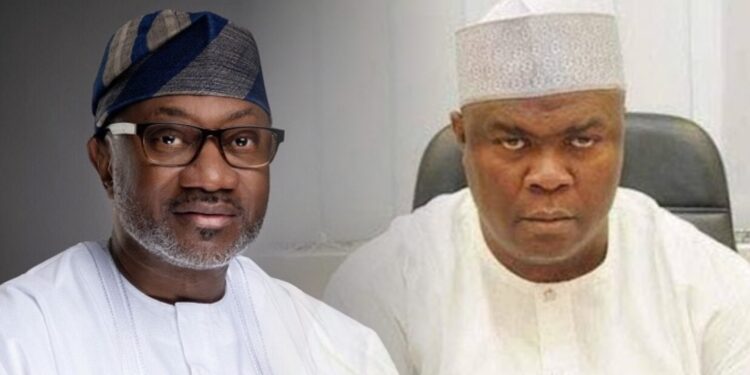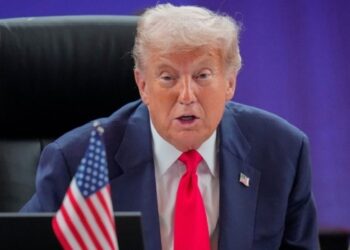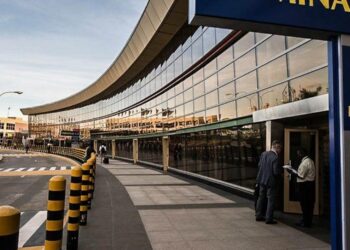By Emmanuel Nduka Obisue
Umar Sani, a former Special Adviser (Media) to ex-Nigerian Vice President Namadi Sambo, on Wednesday issued a blistering response to billionaire businessman Femi Otedola over his recent comments linking the former President Goodluck Jonathan administration to massive fraud in Nigeria’s fuel subsidy regime.
Heritage Times HT reports that in a statement titled “A Right of Reply” posted on his X page, Sani described Otedola’s claims as hypocritical, selective, and a convenient rewriting of history.
Otedola’s Lofty Claims
Billionaire businessman Femi Otedola had, last week, revisited Nigeria’s controversial fuel subsidy regime, asserting that corruption remains rife in the system. He made this claim while weighing in on the dispute between the Dangote Petroleum Refinery and fuel marketers.
In his intervention, Otedola, an ex-major player in the downstream petroleum sector, accused members of the Depot and Petroleum Products Marketers Association of Nigeria (DAPPMAN), a body he claimed he founded, of sustaining a corrupt business model built on subsidy fraud and obsolete infrastructure.
What stood out, however, was Otedola’s allegation that “over N2 trillion was siphoned through questionable subsidy claims under the Jonathan administration”.
‘You Cannot Play Whistleblower After Feeding Fat On Subsidy’, Uma Sani Tells Otedola
Responding, Umar Sani noted that while no one should defend corruption, “it is important to respond with factual clarity and historical accuracy. His claims are hypocritical, selective, and reek of a convenient rewriting of history”.
Sani argued that the subsidy regime predated Jonathan and was entrenched under several administrations, from Obasanjo to Yar’Adua, Jonathan, and even Buhari with “greater opacity”. He insisted that laying the blame solely on Jonathan was misleading, “especially as Otedola himself enjoyed enormous privileges during the era”.
He pointed out a true fact that Otedola’s company, Zenon Petroleum and Gas Ltd, was “one of the biggest importers of diesel and other products, controlling as much as 90% of diesel imports and up to 40% of others. The same system he now condemns was one he benefited from immensely”.
Sani recalled that Jonathan initiated reforms to clean up the subsidy system, including setting up the Aigboje Aig-Imoukhuede-led forensic audit panel, which spotlighted several politically connected operators, including Otedola’s company.
He also referenced the 2012 Occupy Nigeria protests, which frustrated Jonathan’s deregulation agenda, noting that “vested interests, politicians, opportunistic civil society groups, and profiteers sabotaged the effort. For Femi to now feign moral superiority is disingenuous”.
Highlighting past controversies, Sani pointed to the Otedola-Farouk Lawan scandal, saying: “Nigerians also remember the Otedola-Lawan scandal, in which Femi admitted giving marked money to Lawan, later claiming it was a sting operation. Whether this was genuine or a tactic to evade indictment remains debatable”.
According to him, Otedola’s comments appear more as image-laundering trying to project himself as a reformer rather than the enabler and beneficiary records show him to be.
He challenged Otedola to come clean and fully disclose his role in the regime he criticizes. “If Femi truly wants to help, he should come clean, name names, and support a full independent inquiry into the subsidy regime not just under Jonathan but across all regimes, including those he profited from. He should also explain his dealings with AMCON,” Sani posited.
Sani concluded that until Otedola embraces full disclosure, “his accusations amount to nothing more than a pot calling the kettle black”.
Jonathan’s Crucial Role In Otedola’s Debt Resolution
Meanwhile, Jonathan’s leadership and influence was critical in helping Otedola clear his debt. Femi Otedola’s debt with the Asset Management Corporation of Nigeria (AMCON) was cleared in 2012 through the transfer of assets and an undisclosed sum of money to AMCON.
Adebayo Adeniran’s review of Otedola’s Book: ‘Making It Big: Lessons from a Life in Business’, which was released on August 18, 2025, noted that Otedola’s debts were restructured with help from friends in “the highest places,” including former President Jonathan.
Otedola’s debt issues arose from the collapse of his energy trading company, Zenon Petroleum & Gas, after a sharp rise in crude oil prices in 2008. In 2012, he settled his debts with AMCON through a combination of asset transfer and a cash payment.
During his tenure, Jonathan moved to tackle the entrenched corruption in Nigeria’s fuel subsidy regime through a combination of deregulation and investigations. Heritage Times HT recalls that in January 2012, the Jonathan administration announced the removal of fuel subsidy in a bid to dismantle the fraud-ridden system, which had become a drain on public finances. However, the move triggered the ‘Occupy Nigeria’ protests, forcing the government to partially reinstate the subsidy.
Jonathan also initiated a parliamentary probe into subsidy payments, which exposed massive fraud. The probe revealed that the number of companies claiming subsidies had ballooned from six in 2006 to 140 by 2011, with billions lost to fraudulent claims for fuel that was never delivered. In response, Jonathan referred the report to the Economic and Financial Crimes Commission (EFCC) for further investigation.
Beyond the probe, Jonathan established a forensic audit committee led by banker Aigboje Aig-Imoukhuede in 2012 to scrutinize subsidy claims. The audit indicted 21 firms for fraudulent claims amounting to N382 billion and exposed widespread duplication of claims. Though the exercise drew mixed reactions, it demonstrated an effort by the Jonathan administration to confront subsidy fraud and bring accountability to a sector long plagued by massive impunity.
